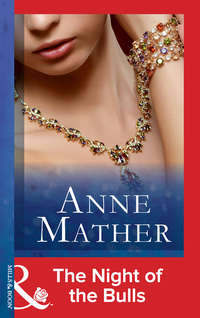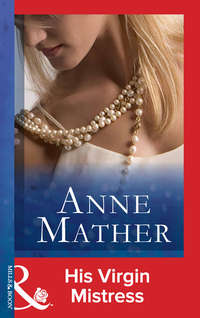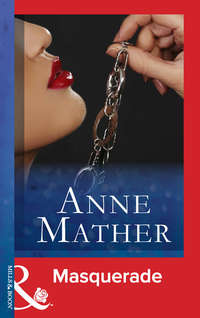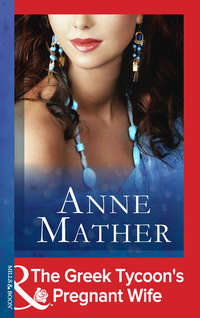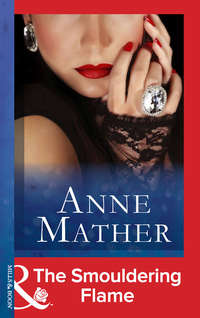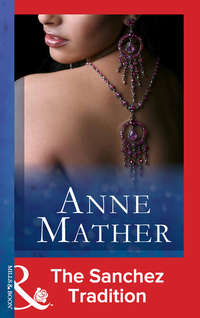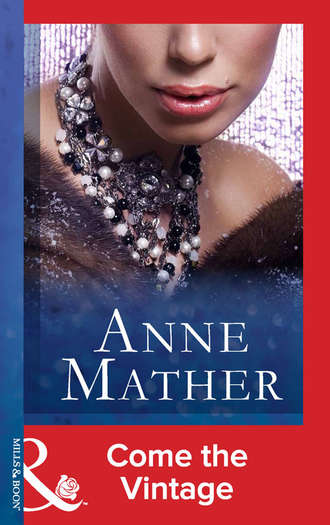
Полная версия
Come The Vintage
‘Let us say I – did not care, one way or the other.’
Ryan felt sick. It was as much with emptiness as anything, but the nausea that filled her was equally upsetting. ‘I – I can’t marry you, monsieur,’ she got out thickly. ‘Please, let us say no more about it.’
Alain de Beaunes regarded her impatiently. ‘There is no one in England, is there?’
‘Of course not.’
‘Then what is your objection?’
‘I’ve explained—’
‘All you have said is that you cannot marry me. No – that you would not marry me! That you believe I took advantage of your father in accepting a partnership with him when I had nothing to offer but my strength.’
Ryan took a deep breath. ‘Half the vineyard is yours, monsieur. Is that not enough for you?’
‘And half – should you refuse to accept your share – will belong to Gaston Aubert, your father’s greatest rival. Is that what you want, English miss?’
‘Of course it’s not what I want.’ Ryan shifted restlessly from one foot to the other. ‘But your acceptance of your share does not involve entering into a marriage with a – with someone you – you—’
‘Despise?’ He finished the sentence for her. ‘Oh, yes, I am aware of your aversion for me, mademoiselle. However, your feelings do not enter into it so far as I am concerned. I am concerned only for the vineyard. I know your father depended on you understanding his feelings in this.’
‘Then why did he do it?’ she burst out hotly.
Alain de Beaunes finished his wine and rose to his feet, towering over her. She was quite a tall girl, but he was so much bigger, so much broader, that he dwarfed her.
‘You are either being very obtuse, or very stupid,’ he said coldly. ‘Consider the situation. Whether you like it or not, your father needed me. He was not strong. He had been ill for many years. Doctors had warned him he should give up working altogether. But this he could not do. The vineyard was his inheritance, it was his life. Your mother, so he said, could not accept this. She was a cold, foolish woman, more fitted to afternoon bridge clubs than working in the fields. Oh—’ this as she would have protested, ‘—this is my interpretation, not his. Your father always spoke most regretfully about your mother. So – this is the position. When your father knows he is dying, what is he to do? No matter what you may have been told, he never stopped thinking about you. He used to talk to me of his little girl, and of how, some day, he hoped you would come to the valley and share his delight in cultivating the vines to make some of the finest wines of the district. But, being the man he is, he feels loyalty to me. He cannot leave me the vineyard, that would not be right. You are his flesh and blood, his heir. But he would not – he could not hand it to someone who knew nothing of the vine, of the grape, someone who might sell – to the Auberts.’ He shrugged. ‘He is still very much a Frenchman, your father. He knows that the marriage of convenience is still the most successful marriage there is. He tries to – manipulate us, no?’
Ryan had listened to him in silence, but now she turned away. ‘You cannot manipulate people, monsieur.’
‘Can you not?’ Alain de Beaunes voice contained a trace of mockery. ‘So you intend to leave?’
‘Of course.’ She swung round on him angrily. ‘Did you think that what you have just told me would change my mind?’
He ran his long fingers through the heavy straightness of his hair. ‘I thought it might have done,’ he conceded.
‘Well, it hasn’t.’ Ryan’s lips moved tremulously. ‘I – I’m sorry, of course. I understand your difficulties—’
‘You! You understand nothing!’ His voice was harsh now.
‘I do not wish to enter into another argument with you, monsieur—’
‘Do you not?’ His lips twisted. ‘Then that is unfortunate, because I cannot stand by and watch you destroy everything your father and his father before him ever worked for without making some effort to show you how selfish you are being.’
‘I didn’t ask for a share of the vineyard!’
‘Didn’t you?’ He put his hands on his hips. ‘Then why did you come here?’
‘I came to see my father.’ Ryan was trembling now. ‘And – and in any case, you said yourself, it would have made no difference—’
Alain de Beaunes swung away from her as though afraid if he remained near her he would strike her. Ryan watched him nervously, and then said: ‘Why couldn’t he have left me half the vineyard without that condition?’
‘And what would you have done then?’
Ryan shrugged. ‘I – I don’t know.’
Alain turned to face her. ‘Shall I tell you? You would have sold it. Without ever coming here to see it for yourself.’
‘You don’t know that!’ she exclaimed.
‘Don’t I?’ His lips curled. ‘I think I do. I think your father knew you were half your mother’s daughter, after all.’
‘Don’t you dare slander my mother!’
‘Why not? Don’t you think she treated your father abominably?’
Ryan’s breathing was swift and shallow. ‘You know nothing about it.’
‘Don’t I?’ he mocked again. ‘I know what your father told me. He was a sick man before he returned to France.’
Ryan stared at him unbelievingly. ‘Wh-what are you saying?’
‘Don’t you know? Didn’t your mother tell you? Your father developed a heart condition almost two years before he left England.’
‘No!’
‘It’s the truth. And the climate did not help. Wet summers, cold winters; he was a prey to bronchial complaints, complaints which weakened the muscles of his heart.’
‘I don’t believe you.’
Ryan couldn’t allow herself to believe him. Her mother could not have permitted her father, a sick man, to return to France alone knowing that he might die at any time!
Alain hunched his shoulders. ‘Nevertheless, it is the truth,’ he asserted firmly. ‘I am sorry if it destroys the image you have of your mother, but quite frankly your father’s last wishes are all that concern me.’
Ryan sought one of the wooden chairs that flanked the kitchen table, and sat down rather heavily. Her legs no longer felt strong enough to support her, and the sickness she had felt turned to a dull throbbing in her temples. Could it be true? Could it be proved? Surely Alain de Beaunes would not risk telling her something like this knowing that her father’s doctor could refute it if it was not true.
She looked up at him unsteadily, her pale cheeks and hollowed eyes eloquent of the shock she had suffered. ‘I – I never knew.’
‘I believe you.’ His tone was less aggressive, but without sympathy.
Ryan shook her head helplessly. ‘How – how could she?’
‘That’s what I asked myself, many times.’
Ryan pressed her palms together. ‘I – I need time to think.’
‘About what?’
She glanced up at him piteously. ‘You know about what.’
He shrugged and turned away. ‘I have things to do. Life goes on, even in the face of death. You’ll let me know your decision, of course.’ Sarcasm had crept in to his tones.
Ryan closed her eyes against the sight of him. Then she opened them again and said: ‘I – I have to do it, don’t I?’
‘That’s for you to decide.’
‘No, it’s not.’ She gazed at him desperately. ‘What – what did you mean by – by a marriage of convenience?’
‘Exactly what it says. I have no interest in a child, mademoiselle.’
Her cheeks burned. ‘I’m not a child, or the situation would not arise.’
‘Maybe not in years, but in experience …’
‘And – and are you experienced, monsieur?’
She didn’t know what made her ask the question, except that she sensed he would have no small knowledge of her sex. He regarded her disconcertingly for a while, and then said: ‘As much as any man who has already had one wife.’
Ryan gasped. ‘You – you have a wife, monsieur?’
‘I had,’ he corrected expressionlessly. ‘My wife died almost ten years ago.’
‘Almost ten years ago!’ Ryan found it hard to take in. Ten years ago she had been a child …
‘I am forty years of age, mademoiselle. Old enough to be your father, I admit. Perhaps you had better regard our relationship in that light. With luck, you could be a widow before you are my age.’
Ryan sucked in her breath on a sob. ‘Don’t say such things!’
‘No?’ He moved his shoulders indifferently. ‘Perhaps not. Perhaps I will live my three score years and ten. Perhaps even a little more. Who knows? A life sentence, mademoiselle, is it not? I am sorry, but I did not make the rules. Your father did that.’
CHAPTER TWO
RYAN’S room was at the head of the twisting flight of stairs which led to the upper reaches of the house. It was not a large room and towards the eaves the ceiling sloped a little, but it was a comfortable room and when she had first seen it, Ryan had been delighted with it. The uneven floorboards were covered with fluffy wool rugs, the bed-spread was a rich folkweave, and the curtains were patterned with sprigs of lilac. If the furniture – the iron-posted bedstead, the heavy tallboy, the mahogany wardrobe and dressing table, were a little outdated, they nevertheless shone from frequent polishings, and the room smelt sweetly of freshly laundered sheets and bees-wax.
On the morning following her father’s funeral, Ryan stood by the window of her room, looking down the sweeping length of the valley. She could see the river, the terraced hillside, the houses huddled at its base, the reaching spire of the church of St. Augustine, and the distant mountains where the snow could always find a resting place. In summer when the snows receded to the high plateau, the goatherds sought the lush pastures that had been hidden all winter long, and the air echoed with the sound of goat bells, but now it was almost time for the snow to come again and Ryan shivered at the prospect.
Still, the rain had departed and the morning was fresh and clear, if a little chill. Ryan had been dressed since the first grey fingers of light probed her bedroom curtains, but she had delayed the moment of going downstairs and confronting Alain de Beaunes. The evening before had a curiously unreal quality about it, and although she had slept almost as soon as her head touched the pillow, she had been awake early, lying staring into the darkness, trying not to feel afraid of the future.
But it was impossible for her not to do so. The idea of marrying a man she had known little more than a week was a terrifying prospect, particularly as that man inspired no confidence inside her. He was so much older, so much more experienced, so big and powerful, so much a man in every sense of the word. She had seen the broad strength of his shoulders, the hair-covered skin of his chest which narrowed to a flat stomach, the muscles bulging against the taut cloth which covered his thighs; how could she believe him when he said theirs would be a marriage of convenience only, that he had no interest in her? Once they were married, she would have no defence against him except his word.
A disturbing shivering sensation ran down her spine and into her legs. Married! Married to Alain de Beaunes! She would be Ryan de Beaunes; Ryan Ferrier, no longer. It was an incredible prospect!
The church bells were ringing out the hour and she glanced automatically at her watch. It was nine o’clock. She would have to go downstairs and face her future husband. She caught her breath on a gulp. If it was not so deadly serious, it would be laughable.
A slim figure in denim jeans and a chunky green sweater, her chestnut dark hair confined with an elastic band, she descended the winding staircase and reached the panelled hall. A smell of freshly ground coffee emanated from the direction of the kitchen, and Ryan’s spirits rose when she thought that perhaps Berthe had returned.
But when she opened the kitchen door, it was not the plump housekeeper who was bending over the fire, but Alain de Beaunes, his tanned skin contrasting sharply with the curious lightness of his hair. Dressed in close-fitting corded pants and a thick black sweater, his trousers pushed into tall black boots, he had obviously been outside, and he exuded an aura of virile good health.
‘Good morning, Ryan,’ he greeted her easily, as though nothing had changed since the previous day. ‘I was just about to bring you some coffee upstairs.’
Ryan closed the door and leaned back against it. ‘That wasn’t necessary,’ she managed, picturing her own alarm at the image of him entering her bedroom. He would dwarf its less than generous proportions.
He shrugged, and indicated the percolator on the stove. ‘Help yourself,’ he directed. ‘I am afraid there is no fresh bread, but perhaps tomorrow …’
Ryan crossed the room rather awkwardly, and reaching down a mug from the dresser poured some of the strongly flavoured liquid into it. She added cream and sugar and stood cradling the cup in her two hands, watching him adding wood to the already blazing logs. Then she licked her lips and said: ‘When is Berthe coming back?’
Alain straightened and looked round at her, brushing his palms over the seat of his pants. ‘Berthe is not coming back,’ he replied flatly.
Ryan’s eyes were wide. ‘Not – coming – back?’ she faltered.
‘No.’ Alain lifted his shoulders expressively. ‘Berthe stayed because of your father. Now there is to be another mistress in the house, she has left.’
Ryan’s cheeks coloured. ‘But – but that’s not necessary.’
‘Isn’t it?’
‘No.’ Ryan spread an expressive hand. ‘Who – who will do all the cooking here – the cleaning – looking after the animals?’ Then at the mocking look in his eyes, she uttered an exclamation of protest. ‘Not me!’
‘Why not you? What do you intend to do all day?’
Ryan sought for words, swallowing some of the coffee as though its bitterness might sharpen her means of retaliation. ‘I – I – I’m not a housekeeper!’
‘What are you, then? Or rather, what do you intend to be?’
Ryan’s brows drew together. ‘I – I’m a librarian—’
‘There are no libraries in Bellaise.’
‘I could do other work – other office work—’
‘For whom? I know – you may take charge of the book-keeping which up till now I have dealt with myself.’
Ryan bent her head. ‘You don’t understand—’
‘On the contrary, Ryan, it is you who do not understand.’ He felt about in his pockets and drew out a case of narrow cheroots. He put one between his teeth, and as he lighted it with a spill from the fire, he went on: ‘Let me tell you something, may I?’ He did not wait for her acquiescence, but continued: ‘You have a lot to learn, Ryan. Oh, I know your father has shown you the vineyards, taken you down to the cellars, and introduced you to the men who work for us. But as yet, you know nothing of our life here. Ours is a small vineyard. We produce less than two hundred cases of wine every year. But we like to think that what we do produce is good, very good. Our wine is comparatively unknown as yet. It is drunk locally, in the hotels and restaurants of the tourist resorts, but we do not make a lot of money. We do not compare to the great wine-producing chateaux of Bordeaux and Burgundy. In consequence, our life is quite simple. We do not waste money employing housekeepers when the mistress of the house is perfectly capable of running her own establishment, do I make myself clear?’
‘But I’ve never – I wouldn’t know how—’
‘You will learn. I will employ a young girl from the village to help you with the heavy tasks, but you will find there is reward in knowing yourself capable of managing alone.’
Ryan finished her coffee and put the mug down heavily on the draining board. ‘You have it all worked out, haven’t you?’ she demanded bitterly. ‘When did you tell Berthe she would no longer be needed? As soon as my father was dead? Were you so sure I’d agree to your outrageous plans?’
‘They were not my plans, mademoiselle,’ he retorted, and his voice had cooled perceptibly. ‘I suggest you stop feeling sorry for yourself and start appreciating your good fortune!’
‘The good fortune of marrying you, monsieur?’ she taunted him insolently, and then felt an inward thrill of fear at the menacing darkening of his tawny eyes.
‘Have a care, little one,’ he said chillingly. ‘Once we are man and wife I will have certain rights where you are concerned. Do not tempt me to exert them.’
Ryan’s cheeks flamed now. ‘But you said—’
‘There are other rights beside the conjugal ones,’ he retorted swiftly. Then he made an impatient gesture. ‘But this is getting us nowhere. I suggest we stop this bickering and begin accepting that for both of us there will have to be – adjustments.’
‘Adjustments?’ Ryan felt stupidly near to tears. She knew whose the greater adjustment would be. Schooling her features, she nodded. ‘All right, all right. I suppose I have no choice, as I’m to be confined here …’
‘In what way confined?’ His voice was dangerously quiet.
Ryan spread her hands, unconsciously revealing her likeness to her father. ‘What else is there for me to do? There are no buses here. No trains that I can see. I can hardly walk to the nearest town, can I, and the village isn’t exactly huge!’
‘You don’t drive?’ It was more of a statement than a question. ‘No? Then I will teach you. There are two vehicles here – the station wagon, and a Landrover. You are welcome to use either of those when you have become proficient. Anciens is only twenty kilometres away. There are shops there, and a cinema. And a library, too, should you require one.’ This last was said with a reversion to his earlier mockery, but Ryan chose to ignore it.
‘Thank you.’
He inclined his head. ‘It is nothing. And now I suggest you help yourself to something to eat. Fatigue follows swiftly on the heels of malnutrition.’
Ryan shook her head. ‘I’m not hungry.’
‘You will be before the morning is over. I suggest you spend the time exploring your domain. The Abbé Maurice will no doubt join us for lunch. Perhaps you should be considering what you are going to offer him.’
Ryan stared at him in horror. ‘You – expect me to provide a meal?’
Alain walked towards the kitchen door and picked up a black leather coat he had thrown ready for use over the back of a chair. ‘I have to go into Bellaise to see Gilbert Chauvin. I expect to be back soon after one o’clock. You will find the larder is well stocked, and there is a deep-freeze in the storeroom. Berthe was a careful housekeeper. I do not think you will be disappointed. Do not trouble to enter the cellar. I myself will choose the wine when I return.’
‘But—’ Ryan took a step towards him. ‘I mean, I’ve never served a meal before!’
Alain opened the door, and stood regarding her with scarcely-concealed amusement. ‘There is always a first time for everything, little one. Adieu – and good luck!’
Ryan stood motionless as the door closed behind him, and after a few moments she heard the station wagon’s engine roar to life. She hurried to the window as the tyres crunched over the cobbles of the yard, but he did not turn to look at her as the vehicle drove between the gateposts and disappeared down the track towards the village.
She told herself she was glad to see him go, but with his departure the house seemed suddenly very empty, and very isolated. For a girl who all her life had been spared the drudgery of housework, it seemed there was a tremendous amount to learn, and she hadn’t the first idea where to start.
Remembering that someone had once told her that the best way to clean a house was from the top down, she looked doubtfully towards the door which led into the hall. The bedrooms, she supposed, were the place she should begin. But where was Alain de Beaunes’ bedroom, and was she expected to make his bed?
Shaking her head, as if to shake away the sense of bewilderment and confusion that filled it, she walked purposefully into the hall and up the stairs. The first landing, where her room was situated, presented what seemed to be an alarming amount of doors to her inexperienced eye. But after discovering broom cupboards, and airing cupboards, and renewing her acquaintance with the rather antiquated bathroom, she discovered that there were only four bedrooms to cope with. The room which had been her father’s offered an air of melancholy which she was little prepared to bear in her emotional state, and she quickly closed the door again, promising herself that she would go through his things fully when time had dulled perception. Apart from her own room, there only were two other rooms, one of which was dust-sheeted, and the other was Alain de Beaunes’.
She hesitated before entering his bedroom, but then pushed away her feelings of distaste. After all, once they were married she would have to get used to caring for his clothes, washing his linen, making his bed. All the same, she felt somewhat of an intruder as she hung his bathrobe on the hook behind the door, straightened the tumbled pillows and smoothed the sheets of the bed. There were no pyjamas lying about, and she assumed he must have folded them away into a drawer. It was an odd thing for him to have done, but it was not up to her to question his actions.
When the bed was made and the coverlet had been neatly spread, she looked round with reluctant curiosity. What was there here to indicate what manner of man he was? A bookcase beside the bed revealed a selection of theses on viticulture, books on economics and the geology of the Rhone basin, and a couple of novels, which Ryan herself would not have been opposed to reading. A bedside cabinet supported a lamp and an alarm clock, but she respected his privacy sufficiently not to probe into its drawers and cupboard.
The furniture matched that in her own own room, although his bed was broader and longer, and looked rather more comfortable. On impulse, she opened the wardrobe door and looked at the clothes hanging inside. There were not many, obviously Alain de Beaunes did not pay a lot of attention to keeping up with current fashions, but as she closed the door again she had to concede that in his case clothes were merely a necessary covering and not something to accentuate his masculinity. His masculinity was in no doubt.
Realizing she was wasting time, she quickly left his bedroom, made her own bed and tidied her room, and then went downstairs again.
A mewing at the kitchen door admitted the huge tortoiseshell-coloured tabby which had occupied the settle by the fire until Berthe’s departure, and which Ryan had assumed belonged to her. But now the cat walked into the kitchen as though it owned the place, and ignoring Ryan completely took up its former position on the settle. Although piqued at its treatment of her, Ryan was almost glad of its company, and there was something reassuring about knowing it was there, relaxed and uncaring, licking its paws.
Her distraction had cost more time and her eyes sought the clock on the mantelshelf with some alarm. It was half past ten already. How long did meat take to cook, and what on earth was she to give them for lunch?
As she pushed the dirty dishes from the table into the sink, she reflected that Alain at least had had breakfast that morning. There was the sweet smell of conserve on his knife, and a thick slice had been cut from the crusty loaf that still resided on the table. A quick look round revealed a bread bin, and she stuffed the remains of the loaf inside, and closed the lid over the curls of butter in their dish. As she did so her own stomach gave a knowing little rumble, and she sighed. She ought to have something to eat. But time was precious, and she steeled herself against hunger.
The storeroom adjoined the kitchen. She had been in there once with Berthe and seen the sacks of salt and flour, the bins containing sugar and dried fruit, only then she had never dreamt that in so short a time she would have charge of the household.
The freezer revealed an impressive array of meat and vegetables. Obviously Berthe had frozen a store of greens for the coming winter, as well as bottling jams and chutneys and preserved fruits. It was alarming for Ryan to imagine herself coping so efficiently. She felt sure she would never do it.


